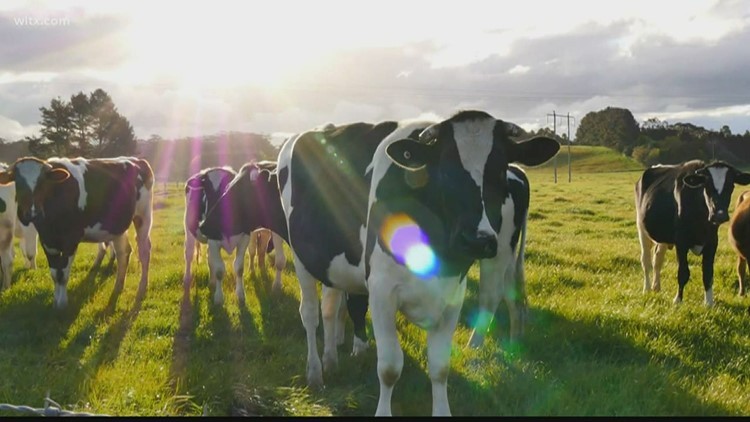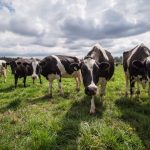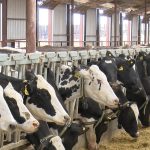
South Carolina dairy farms are taking a hit as the coronvarius pandemic continues to impact the agriculture industry in the state and across the country.
Watson Dorn is the owner of Hickory Hill Milk in Edgefield. He’s a third-generation dairy farmer. They’ve been milking cows there for the last 70 years.
“We bottle our own milk, Hickory Hill Milk, and sell it all over the Columbia and Lexington areas, as well as other parts of the state,” said Dorn.
Some of their milk can be purchased at grocery stores like Publix and Lowes Foods.
Since the coronavirus pandemic has started, it’s taking a big impact on the agriculture industry. Farms are not able to sell their product to restaurants who have been forced to close or operate with only curbside pickup, takeout, or delivery services.
https://www.facebook.com/hickoryhillmilk/posts/10157181374806134
Dorn says farmers have really been taking it hard the last three weeks.
“We’ve lost about 60 percent of our business because most of that was going to restaurants through Sysco Food Service, US Food Service and Performance Food Service,” explained Dorn. “We’re hoping that this won’t last much longer because we’ve basically taken a 60 percent pay cut and the milk we didn’t have bottled, we have to send to the milk cooperative at a very discounted price.”
While there’s been a lot of milk sold at grocery stores, this doesn’t mean business is going well with farmers. With much of their business coming from restaurants, they’re losing a large part of their profit.
“A lot of the supermarkets around are limiting the amount of milk customers can buy. The flip side of that is dairy farmers, as close as Georgia, they’re having to dump milk because there’s no sells for it.”
Dorn is hoping grocery stores and restaurants won’t limit sells as long as there is enough supply.
This isn’t the first hardship South Carolina farmers have had the last couple of years. With natural disasters and the Floods of 2015, farmers have been taking hits seemingly every year.
“2014 was a pretty good year but since then, we’ve been producing milk at less than the production cost. It’s been a rough time for dairy farmers. We’ve lost a lot of dairy farmers all over the nation.”
Dorn’s biggest concern is the pandemic doing away with local food supply. He’s concerned about losing local farms.
The farmer says back in 1984, there were 370 dairies in South Carolina. Now there’s less than 30.
“Losing our local supply would be devastating,” said Dorn. “We need to keep farmers in business.”
“The biggest issues are lower prices. On the farm, we receive about the same price for milk that we did 25 years ago and I can’t think of any other thing that a person purchases the same price it was 25 years ago.”
Dorn says the United States is blessed to have the safest and most abundant and most inexpensive food supply in the world.
He believes now is the time to open the market back up.
“I think we’ve been smart handling this. The government has done a good job trying to get people, keep them at home. But I think the worst of it is over and it’s time to open the economy back up and I think it will take off like a rocket whenever we do.”
To help local farmers, Dorn thinks the best thing people can do is buy from them and support them.

























